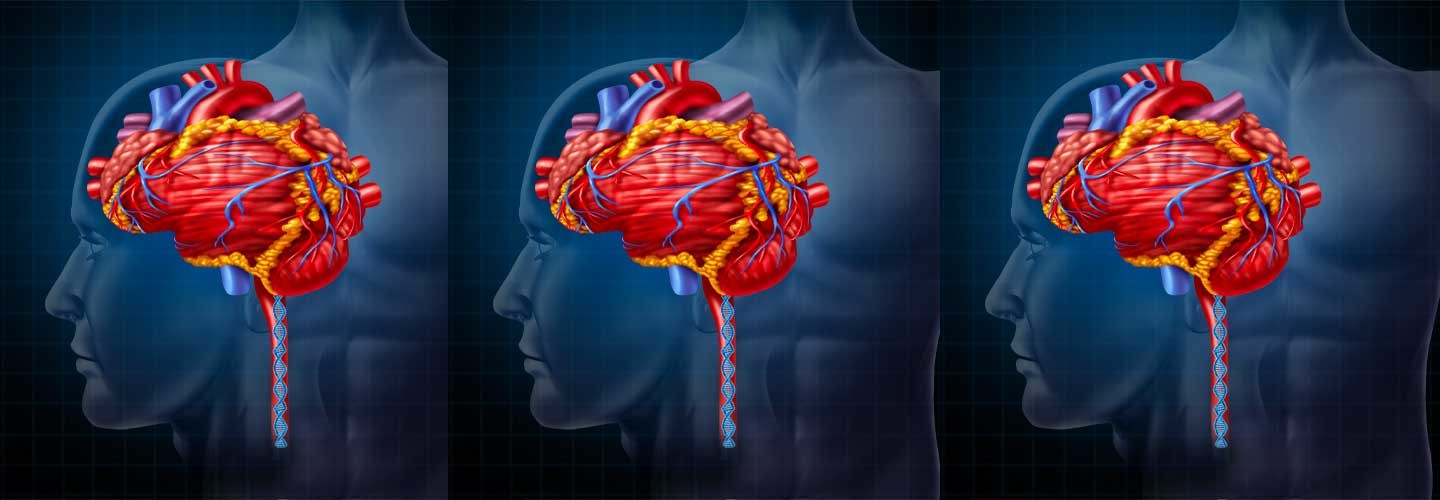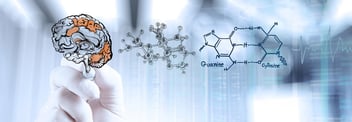The DNA of Emotional Health – Part 6 Fatty Arteries Make Skinny, Shrinking Brains
- Home
- Blog

Reader, have you ever wanted to change the past? If you answered “no”, give me a call—because every single other individual who I’ve spoken to not only answers with a resounding and immediate “yes”, but can often tick off at least five things they’d change, if they could. The past is a notoriously difficult force to grapple with in therapy, because try as we might, no amount of mental or physical energy can help us time travel. The past is a place that no longer exists, and none of us get a do-over. However, when we are able to make peace with our past, we give our future selves a fighting chance at real happiness. Over the last 18 months, you’ve read countless success stories on my blog of patients who were in the depths of their suffering, but found ways to overcome—and to become whole. Such messages of personal healing are very much a theme of our wellness-focused era, and while there are many reasons to take some dubious purveyors of this message with a grain of salt, it’s a popular message because it’s true. We can change our lives for the better. We can move on, even from the deepest trenches of mental illness, trauma, and hurt. We can lead lives aligned with our truest values—we can recover and prosper! Our minds and bodies are amazingly adaptable—it’s what has allowed our species to survive and thrive.
But improvement doesn’t offer a wholesale erasure of the past. Some things that are lost cannot be recovered, some decisions cannot be undone. Sometimes becoming whole means finding forgiveness within ourselves and accepting this sobering fact of life with grace. We cannot control every aspect of our fate, or our destiny, but the sooner we become more mindful of what we can control, the sooner we can begin to live our lives more freely, and with fewer regrets when we look back upon our past life in the future. Reader: that’s what I want for each of my patients—living out their fullest potential through deep insights, informed decision-making, and the least possible regret. And it’s what I want for you, too. Last week, I wrote about the pervasive myth that our minds are somehow separate from and more powerful than the bodies in which they inhabit. Today, I want to continue with that theme by showing you just how crucial it is to pay attention to your body, for the sake of your mind (and your brain), both now and in the future. Simply understanding your own body can add years to your life—and neglecting it can strip you of your ideal future. You only get one body, and you only get one brain. Start protecting them now—the future you will thank you.
What Are “Fatty Arteries”… and Why Should I Care?
“If only I’d known this when I was younger…” I hear this adage with some frequency from my middle-aged and senior citizen patients. One of the greatest sources of regret stems from arriving at a crucial, life-changing understanding when it’s too late to do anything about it—and one of the most common times this occurs is when I see patients who had no idea their youthful behavior would have such an impact on their future health and well-being. “Youth is wasted on the young”—but it doesn’t have to be. Today, I want to shed light on a common misunderstanding people of all ages hold, but shouldn’t: That memory loss and decline in cognitive functioning are simply the product of getting older.
When middle-aged individuals experience their first “senior moment”, it can feel something like an initiation into a new chapter in life. Instead, it should be the motivating moment to begin investigating the source of such decline—and one of the most common sources lies in wait in over a third of the American population. Dyslipidemia and Atherosclerosis are two common and well-identified culprits of cognitive decline and memory loss, and their underlying processes are quite straightforward: Dyslipidemia occurs when there is an abnormal amount of lipids, including cholesterol, in the blood. Atherosclerosis occurs when those lipids begin to build up in our arteries, making it harder and harder for oxygen and nutrients to pass through into our brains, which are vital to nourishing brain cells and creating the energy to power them. While our brain only comprises 3% of our body mass, it needs to produce 20% of the body’s total energy production. When our arteries become “fatty”, we slowly deprive our brain cells of the very components needed for them to function properly. Our neurons, or begin to starve. Oxidative stress and inflammation increase which begins to damage and kill those cells. Our cognitive processes begin to decline. Our memories lapse and we may feel fatigued. This “skinny” brain of ours begins to wither—but unlike many other cells in our bodies, which can be regenerated, once our neurons die, we cannot recover the vast majority of them (one exception is the ability of our hippocampus to create new cells). They are one of our body’s few non-regenerating cells.
Unhealthy eating habits and sedentary lifestyles can leave us prone to dyslipidemia and atherosclerosis—but so can our genes… in particular, our HDAC9, PCSK9, and SMARCA4 genes. A variant on the HDAC9 gene has been associated with increased thickness of the lining of the carotid artery—the artery responsible for supplying blood to the brain, neck, and face—as well as increased plaque on other arteries, which can lead to stroke. A variant on the PCSK9 gene is involved with lipoprotein processing and can predispose individuals to dyslipidemia. Lastly, a variant on the SMARCA4 gene has been shown to influence the expression of other genes that encode for lipid receptors, further increasing risk of hyperlipidemia and atherosclerosis. These are your body’s “fatty artery” genes—and it matters that you know about them now, because if you understand you are predisposed to these memory-robbing genes, you can begin to alter your lifestyle now, before it’s too late, and change your fate for the better.
To underscore the importance of these genes and their impact on cognitive functioning, I want to share Sharon’s story with you. Hers is an example of when “too late” has already arrived—but by working with what she had, she found ways to live with her past and move forward with some peace.
Sharon’s Story: How Paying Attention to your Body Now Can Spare a Future of Hurt
Sharon* came to me for treatment of her depression, anxiety, suicidal thinking, and cognitive impairment. This personable woman in her mid-sixties was a retired college professor, and had suffered from anxiety ever since childhood. Her symptoms had responded well to Lexapro, but then she began to develop memory problems, trouble retrieving words and depression. The Lexapro was switched to Effexor and she became worse. A one-month hospitalization at a prestigious neurobehavioral center brought about no improvement, but did uncover some important information—an MRI of her brain revealed chronic microvascular ischemia, a narrowing of blood vessels due to fatty deposits (“fatty arteries”), and cerebral volume loss (“skinny brain”). She and her husband, a local physician, were feeling pretty hopeless by the time they arrived in my waiting room.
Under the biopsychosocial model we agreed upon a further workup, and here is what was uncovered: very low vitamin D levels, elevated hemoglobin A1c (prediabetes), and an LDL cholesterol of 136 (this “bad cholesterol” ideally is below 70 to prevent heart attacks and strokes). Her cholesterol elevation was despite the fact that she was treated with high dose statin therapy, which aims to lower bad cholesterol to healthier levels. On her Genecept Assay she evidenced the following variants: SLC6A4 S/S (one of the “Orchid Genes”), MTHFR T/T (70% reduction), CACNA1C, and COMT Val/Val. These variants guided our initial approach, respectively adding over the next few months Trintellix; Deplin; low-dose Lithium and Gabapentin; and Bupropion. We also placed her on a Mediterranean Diet and Vitamin D3 supplementation. In a few months she was somewhat better, but still suffered from significant anxiety and memory impairment.
To address these remaining concerns we performed a Mindful DNA Assay. An FKBP5 variant in her “fight, flight or freeze response” led us to initiate N-acetylcysteine (NAC), but equally if not more important were her variants in PCSK9, PPARG and SMARCA4 genes. As mentioned in the prior section, these important genes regulate the effects of cholesterol and triglycerides, and helped to explain why her blood vessels had narrowed in her brain, resulting in loss of vital brain tissue responsible for healthy cognitive functioning. I referred her to a cardiologist to better treat her LDL elevation with the addition of ezetimibe and/or a PCSK9 inhibitor, but she refused the referral, emphatically telling me “I will not take any additional prescription medications, but I would be willing take supplements!” And so we began her on Berberine, Omega 3 and Quercetin. While we couldn’t reverse the brain damage caused by her elevated LDL combined with inflammation and metabolic syndrome, we could try to prevent further brain volume loss with these supplements combined with daily cardio exercise and frequent intellectual stimulation. She also enrolled in a 12 week outpatient program to grow hippocampal brain volume, as her hippocampus had shrunk over the years, and damage to this important center of memory formation and emotional regulation was a principal driver of her problems.
It is now one year later. Sharon’s family reports that her depression and anxiety symptoms appear much better, and she had resumed socializing with them, but her confusion and memory problems remained the same. She feels despondent over her memory loss, and I do as well, as I have nothing more to offer her to help her recover her lost brain cells. Unfortunately for her and her family, Sharon began treatment about ten years too late. We were at the end of the line. If only she had begun to protect her precious, prized brain ten years earlier, her outcome would have been dramatically improved.
Related Information
- Learn about Genetic Testing
- Learn about Potomac Psychiatry
- Meet Our Doctors
- Contact Potomac Psychiatry
.png?width=144&height=144&name=Untitled%20design%20(34).png)



